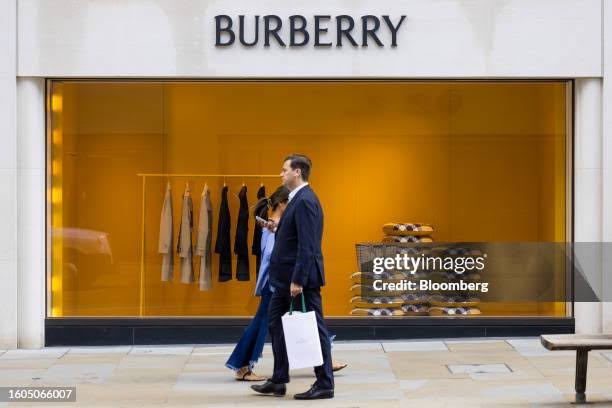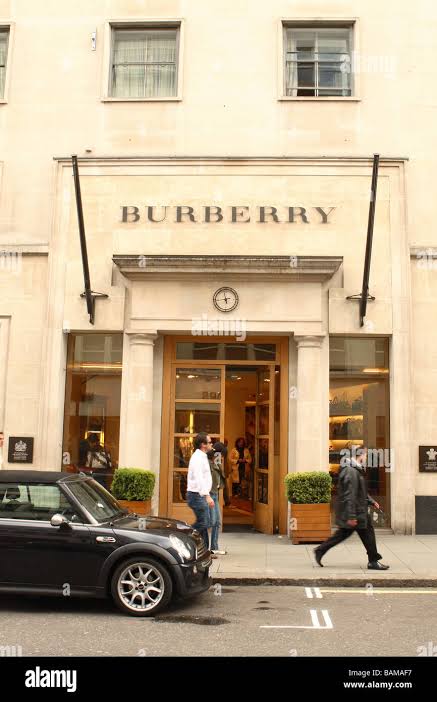Fashion brand Burberry is implementing strategic changes in order to rejuvenate itself in the face of decreasing sales. The company has recently announced a change in leadership. Joshua Schulman, previously in charge of the US brand Michael Kors, will now be taking on the role of CEO. He will be replacing Jonathan Akeroyd, who has departed Burberry “with immediate effect.” This leadership change aligns with Burberry’s announcement of a notable decline in sales, mainly attributed to a decrease in demand for high-end products, particularly in China.
Burberry is currently evaluating potential reductions in its workforce, and if the current patterns continue, it is anticipated that profits will not meet the projected targets. Famous for its timeless camel, red, and black check pattern, Burberry experienced a 21% decrease in retail revenues during the three months ending June 29. Chairman Gerry Murphy expressed his dissatisfaction with the figures, highlighting the unexpected difficulties faced in the luxury market.

Akeroyd had set out to enhance Burberry’s market position, but Murphy stressed that the brand is now prioritizing “taking decisive action to readjust our offerings to better resonate with Burberry’s loyal customers while also introducing fresh and relevant elements.”
With Joshua Schulman at the helm, Burberry is ready to tackle the challenges of the luxury market and strengthen its bond with its loyal customers. Schulman’s impressive track record with Michael Kors, where he demonstrated strong leadership skills, makes him an ideal candidate to guide Burberry through its current obstacles. The brand’s decision to shift its strategy and adapt to the preferences of its dedicated customer base is viewed as a vital move in reclaiming market share and stabilizing sales.

The luxury fashion industry has encountered various challenges in recent times, as economic uncertainties and changing consumer behaviors have had an impact on sales. Burberry has faced additional challenges due to the decline in China, a crucial market for high-end products. The brand’s long-standing reputation and deep-rooted history have always been its strong points, but staying relevant to the changing needs of today’s consumers is crucial for its ongoing prosperity.
Burberry’s recent actions to reduce its workforce and streamline its operations are part of a larger plan to improve efficiency and lower expenses. The company’s leadership understands the importance of taking prompt action to tackle the current decline in sales and set the brand on a path of future expansion. Through a strategic approach that prioritizes its loyal customer base and the introduction of new and timely products, Burberry is determined to revive enthusiasm and boost sales.
The brand’s iconic check pattern, which is closely associated with luxury and British heritage, continues to be a valuable asset. Burberry faces the task of utilizing this iconic design while also finding ways to stay current in a highly competitive market. The delicate equilibrium between preserving tradition and embracing innovation will play a pivotal role in Burberry’s efforts to captivate its devoted clientele as well as attract fresh audiences.

As Burberry undergoes this transition, industry observers will be closely monitoring Schulman’s strategy for rejuvenating the brand. Based on his successful tenure at Michael Kors, it is evident that he possesses the necessary skills and foresight to guide Burberry during this difficult phase. The brand’s success in bouncing back will heavily rely on its flexibility in responding to shifting market dynamics and evolving consumer preferences.
Burberry’s choice to replace Akeroyd with Schulman demonstrates a dedication to revitalizing the brand and tackling the obstacles it encounters. The company’s leadership change reflects a strong commitment to making decisive moves and executing strategic plans that will fuel expansion and enhance profitability.
The luxury fashion industry is renowned for its cyclical nature, characterized by periods of rapid expansion that are often accompanied by various obstacles. Burberry is taking proactive measures to navigate these cycles and come out stronger. This includes potential job cuts and a renewed focus on core customers. The brand’s rich history and esteemed standing lay a strong groundwork for its forthcoming triumph.
Ultimately, Burberry’s shift in leadership and strategic direction marks a pivotal moment for the brand. Under the leadership of Joshua Schulman, the company is well-positioned to address its current obstacles and take advantage of opportunities in the luxury market. Through reestablishing connections with its loyal clientele and offering innovative, timely merchandise, Burberry strives to rejuvenate its sales and solidify its standing as a prominent high-end fashion label. The path ahead may present difficulties, but Burberry’s dedication to taking decisive action and embracing innovation provides optimism for a triumphant comeback.